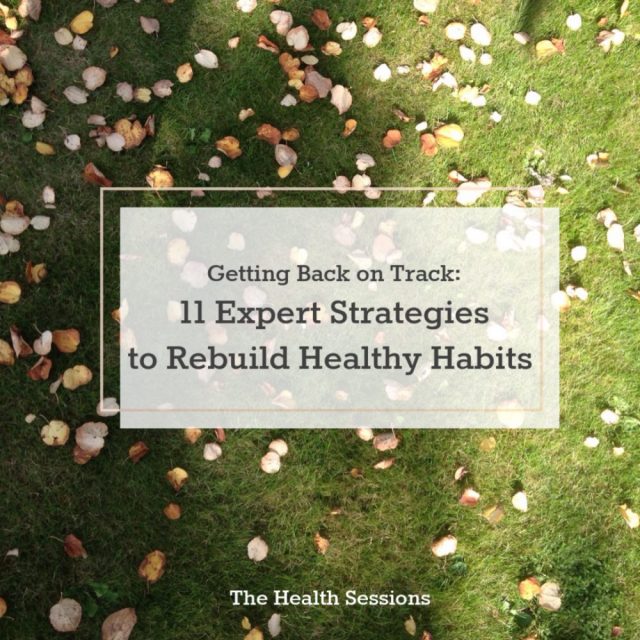How to Boost Your Circulation Naturally

This blog post contains affiliate links to resources you might find helpful, at no extra costs to you. All opinions are my own.
Summer is officially over and schools are back in session all over the world. It marks a new beginning, a fresh start to rebuild healthy habits after an indulgent summer break with one too many glasses of wine and lazy days in the sun.
Now, don’t get me wrong, there’s absolutely nothing wrong with living life and treating yourself. As Hayley from Full of Life rightfully points out, what’s the point of working hard to feel as healthily as possible, if you aren’t doing anything aside from obsessing about your diet and workout plan?
But when it comes to ‘bad’ habits, there’s often a sliding scale. It starts innocently, with big BBQ’s and ice cream cones on the beach and staying up way too late and skipping yoga class, “because it’s summer, we’re on vacation, let’s live a little” (and you should!).
But then the holidays are over and all of a sudden you find yourself mindlessly eating a bowl of cookie dough ice-cream in front of the TV every night and it becomes harder and harder to break a habit you didn’t mean to have in the first place.
This time of year, with the changing of the seasons and faux back-to-school feel, is a fitting moment to re-examine your health habits, let go off what isn’t working and embrace new things.
So here are 11 expert strategies to get back on track with a healthy lifestyle.

A vague sense of “I should really go for a run, it’s good for me” usually isn’t going to cut it when it’s dark and cold outside and you’d rather snuggle up on the couch with your latest Netflix-addiction.
So ask yourself: why do you want to lead a healthy lifestyle in the first place? What’s your main reason?
Maybe you simply want to feel good in your own skin, be happy and energetic. Maybe exercising and eating well helps you deal better with your health problems and reduces painful symptoms. Or maybe you want to get fit enough to fulfill your dreams of hiking the magnificent Machu Picchu trail or run the New York marathon with your best friend.
Whatever your deepest “why”, let it motivate you to take action!
But as Zig Ziglar noted: “People often say that motivation doesn’t last. Well, neither does bathing. That’s why we recommend it daily.”
Here are some ideas to remind yourself regularly why you want to stick to your healthy habits:

When you pick a new habit to adopt, take Leo Babauta’s advice and make sure you start small – really small. Here’s why:
As Gregory Ciotti at 99U puts it: “You need to balance your desire to dream big with your day-to-day activities, which often do not result in quick, dramatic changes.”
And if you still struggle to get started with your small habit, adopt the 20-second rule to overcome procrastination.

You know how you suddenly get a craving for popcorn when you go to the movies, even though you never eat it outside of the cinema? That’s because your past visits have ‘trained’ your mind to believe that movies and popcorn go hand in hand. Just being in the movie theatre can trigger you to think, “mm, let’s get some salted caramel ones!”
Rituals and habits like this make up a big part of your daily life. Research suggests that over 40% of the actions you perform every day aren’t conscious decisions, but habits. So if you want to lead a healthier lifestyle, it helps to understand how habits work – and how you can get off autopilot to make changes.
In his New York Times bestseller “The Power of Habit”, Charles Duhigg describes how at the heart of every habit is a neurological loop with 3 elements: a cue, followed by a routine and finally a reward.
The habit loop starts with a cue, ranging from being in special surroundings (like the movie theatre or drive-in) to certain times of day (Friday night movie night) and external or internal events (date night at the cinema or feeling emotional). This cue triggers a routine – the behavior you want to change or adopt – which gives you some kind of reward (a satisfied sweet tooth or sense of nostalgia to stick to our popcorn example). Feeling rewarded for performing the routine reinforces the habit, making it even more likely that you’ll automatically act the same way the next time you encounter the cue.
Being a creature of habit makes perfect sense, because not having to think about every single act we perform each day frees up precious mental energy to spend on more important things. And luckily for us, our minds don’t just work this way around ‘bad’ habits. You can use the same psychological principles to your benefit, by linking a new, desired behaviour to an existing cue or habit.
For example, when you consistently take your supplements over breakfast or you practice deep belly breathing while you’re doing the dishes, those routines serve as a trigger for the new habits you want to create. That makes it a lot easier to ‘remember’ to actually do your healthy thing, which brings me to my next point…

Haven’t we all been there? You had the best intentions to cut down on sugar, but after finally getting your kids to sleep at the end of a tiring day, that plan goes right out the window and all you want is to devour every single cookie in your cupboard.
Willpower alone isn’t enough to make you stick to your healthy habits over time. Studies indicate that, like a muscle, mental discipline can be fatigued. So when you fight the urge to eat a muffin with your coffee or force yourself to head to the gym before work, it’s harder to resist temptations later in the day. It’s what Baumeister and Tierney, in their must-read book “Willpower: Rediscovering the Greatest Human Strength” call ego depletion.
So instead of relying on your willpower it’s better to have concrete strategies for dealing with the inevitable obstacles on your way:
You may not realise it, but your surroundings strongly influence your everyday behavior.
For example, research shows that people buy more items from shelves on eye-level than from lower shelves and they’re more active when there are safe sidewalks in their neighbourhood.
Basically, what’s right in front of you or easily available determines your default actions.
The good news is, this also means you can change your personal surroundings so they’ll encourage you to make healthier choices, effortlessly. As James Clear puts it: “To make good habits easier, reduce the number of steps to do them. To make bad habits harder, increase the number of steps between you and the habit.”
So how does that work?
According to Psychology Today (and a bunch of scientific research), the secret to successfully building habits is planning in advance how you’ll handle common barriers or unexpected events.
All you need is one simple formula: “If X happens, then I’ll do Y.”
Let’s say you’d like to feed your body more health-boosting, nutrient-rich foods. One way of making that happen is by setting a simple ‘rule’ for yourself: “If it’s a week night, then I’ll make a home cooked dinner with fresh ingredients.”
Creating a behavioural chain like that ties right in with what we discussed earlier about how habits work – linking a new, desired behaviour to cues that already exist in your life. But “if-then” planning doesn’t just make vague resolutions to pursue a healthy lifestyle a lot more concrete, it also helps you stick to your intentions when your original plans fall through.
For example:
Making if-then plans is one of the most effective ways to achieve any goal, from quitting alcohol and smoking to monthly breast examination, so make sure you decide ahead of time when and where you’ll perform your healthy habit and how you will overcome common obstacles like a lack of time and energy.
On a side note: When it comes to resisting temptations, Gretchen Rubin has a good question for you: Are you an abstainer or moderator? As in: can you eat one small hand of potato chips and feel satisfied (seriously, is there anyone who can??) or do you only crave it more after the first bite? The answer might help you pick the best strategy for you to have a healthy, guilt-free relationship with food, without sacrificing the pleasure it can give you.

Your inner dialogue plays an important part in staying on track with your health habits. Who hasn’t experienced the “What-the hell-effect” after already made one unhealthy choice and decided to throw your resolutions overboard for the rest of the day?
But research shows the way you talk to yourself can also have a significantly positive effect on your lifestyle.
Imagine your friend offers you a glass of wine, but you resolved to cut down on your drinking this month. Just a subtle change in language makes you more able to resist the temptation, by saying “No thanks, I don’t drink wine tonight” instead of “No thanks, I can’t drink wine tonight”.
You see, “I can’t” implies a restriction you imposed on yourself, whereas “I don’t” feels like a choice. What’s more, saying “I don’t” instead of “I can’t” also ties in with what James Clear calls identity-based habits. As he puts it: “Your actions are a reflection of your identity. (…) To change your behavior for good, you need to start believing new things about yourself.”
And it’s not just what we say to and about ourselves that influences our health habits – it’s what we think about lifestyle ingredients like exercise as well. Contrary to what you might suspect, studies have proven that longterm goals like a better health and weight loss are not the most effective motivators for people to make physical activity a priority in their busy lives. Instead, it turns out that rethinking exercise as a source of immediate rewards – more energy, less stress, a good mood, enhanced performance at work – is a much better way to people to move their body on a regular basis.
Which brings me to my final expert tip from Kevin Geary at Rebooted Body: Loose the ‘working out’ mindset and do what you love instead. If you want to make a healthy lifestyle your new normal, choose an activity you truly enjoy: walking in the woods, cycling, ice skating in winter. Make healthier versions of meals you love instead of chewing on a celery stick.
Getting back on track is not about following a short-term diet or fitness fad, it’s about making a lasting lifestyle change that you enjoy.
Which healthy habits are you looking to rebuild? And how are you planning to do so? Please share your struggles and successes in the comments!